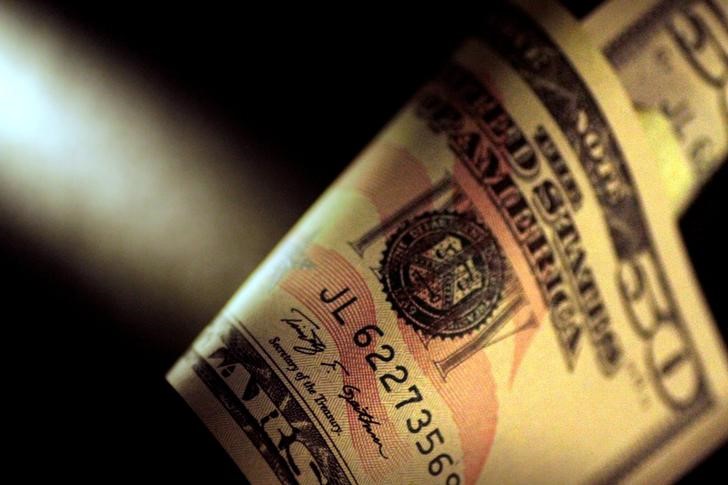By Gina Lee
Investing.com – The dollar was down on Tuesday morning in Asia but climbed to its strongest level in more than a month against the Japanese yen. A jump in U.S. Treasury yields overnight as investors bet on an early U.S. Federal Reserve interest rate hike also gave the U.S. currency a small boost.
The U.S. Dollar Index that tracks the greenback against a basket of other currencies inched down 0.04% to 96.180 by 8:52 PM ET (1:52 AM GMT).
The USD/JPY pair inched up 0.09% to 115.43.
The AUD/USD pair edged up 0.13% to 0.7200, with the Australian dollar near the near two-week low of $0.7184 hit during the previous session. The NZD/USD pair inched up 0.07% to 0.6789.
The USD/CNY pair was up 0.32% to 6.3727. Chinese data released earlier in the day showed that the Caixin manufacturing purchasing managers index for December was a better-than-expected 50.9.
The GBP/USD pair inched up 0.07% to 1.3481. The pound was flat from Monday, when it fell as low as $1.3431 for the first time since Nov. 29.
The Japanese, Chinese and Australian markets all re-opened after a holiday.
The dollar rose as high as 115.395 yen for the first time since Nov. 25, boosted by long-term U.S. Treasury yields soaring 12.5 basis points overnight to hit 1.6420% for the first time since Nov. 24.
Investors also continue to bet that the Fed will hike interest rates in 2022, with money markets fully pricing in a first hike by May and two more by the end of 2022.
"The market is pricing in a more aggressive U.S. rate hike scenario, or at least the risk thereof, in 2022, and that definitely remains the key support for the dollar," Barclays senior FX strategist Shinichiro Kadota told Reuters.
The number of global COVID-19 cases also continues to surge, thanks to the omicron variant. Global travel and public services continue to be delayed, with the surge also likely to delay the reopening of more U.S. schools after the holidays. Thousands of schools have already delayed openings, with New York City hitting a 33% positivity rate.
However, investors remained hopeful that lockdowns could be avoided. Meanwhile, the U.S. Food and Drug Administration on Monday authorized a third dose of the Pfizer Inc. (NYSE:PFE)/ BioNTech SE (F:22UAy) COVID-19 vaccine for children aged between 12 and 15 years. The regulator also shortened the time for all booster shots to five months from six months after primary doses.
